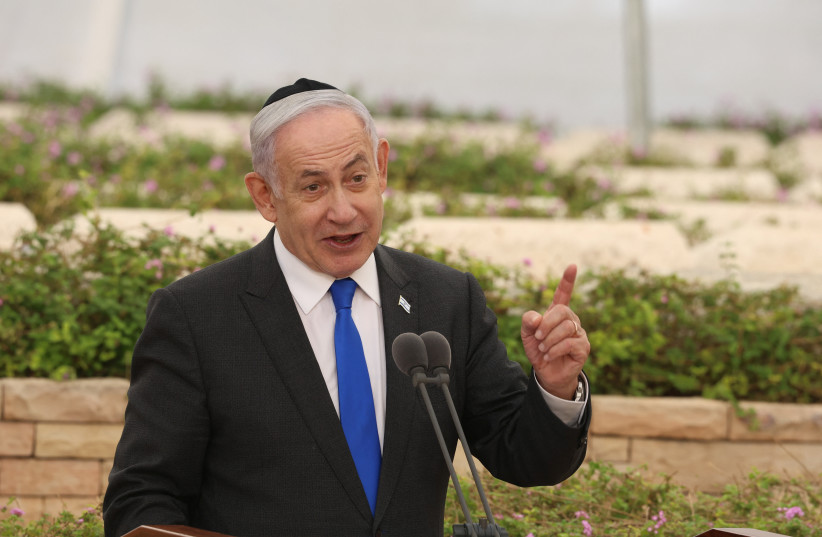Prime Minister Benjamin Netanyahu doesn’t plan to attend the United States Embassy’s July 4 party, due to the ongoing IDF wars with Hamas in the south and Hezbollah in the north.
“Israel is in at war and the prime minister is busy managing it,” Netanyahu’s office said.
“Just as the Prime Minister did not participate in the [Israeli] Independence Day and Jerusalem Day ceremonies – so he deemed it appropriate not to attend the American Independence Day celebrations at the Ambassador’s Home,” the Prime Minister’s Office stated.
The party itself will be a toned-down affair in light of the war. The media, which typically attends, has not been invited. The traditional guest list is highly condensed, although some ministers have been invited. Foreign Minister Israel Katz is expected to attend.
A source close to Netanyahu dismissed as “nonsense” reports that the prime minister’s decision not to attend the US Embassy party was due to tensions with the Biden administration.

Frustrated by no invite to Washington
That event was a large gala affair held at the Israel Museum in Jerusalem. At the time Netanyahu was frustrated by the absence of an invitation to Washington, which traditionally is extended to Israeli prime ministers upon taking office.
Netanyahu was sworn into office at the end of December 2022, but as of July 2023 had not yet received such an invite.
He did meet with US President Joe Biden – who he has known for over four decades – in New York in September last year, on the sidelines of the United Nations General Assembly.
Biden has yet to extend an invitation to Netanyahu to visit him in the White House, even though the prime minster is set to travel to Washington later this month to address a joint session of Congress.
Biden and his administration have strongly backed Israel in its wars against Hamas in Gaza and Hezbollah in the north.
But relations have still been tense between the strong allies over strategies regarding the Gaza war, the distribution of humanitarian aid in Gaza, and the pace of the flow of arms to Israel.
